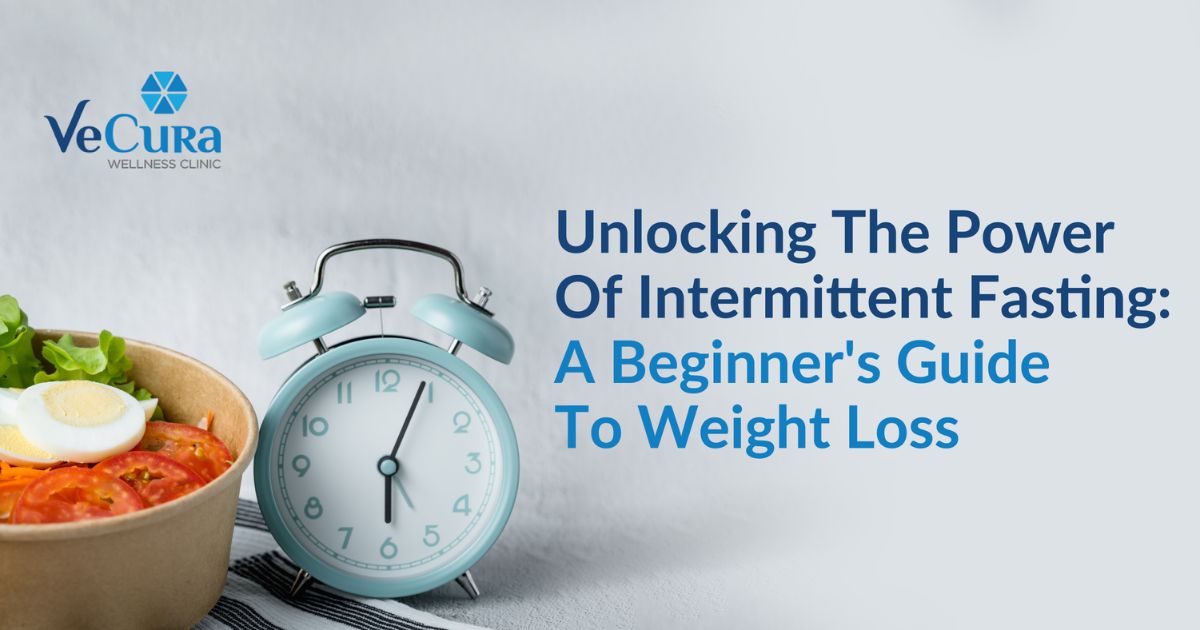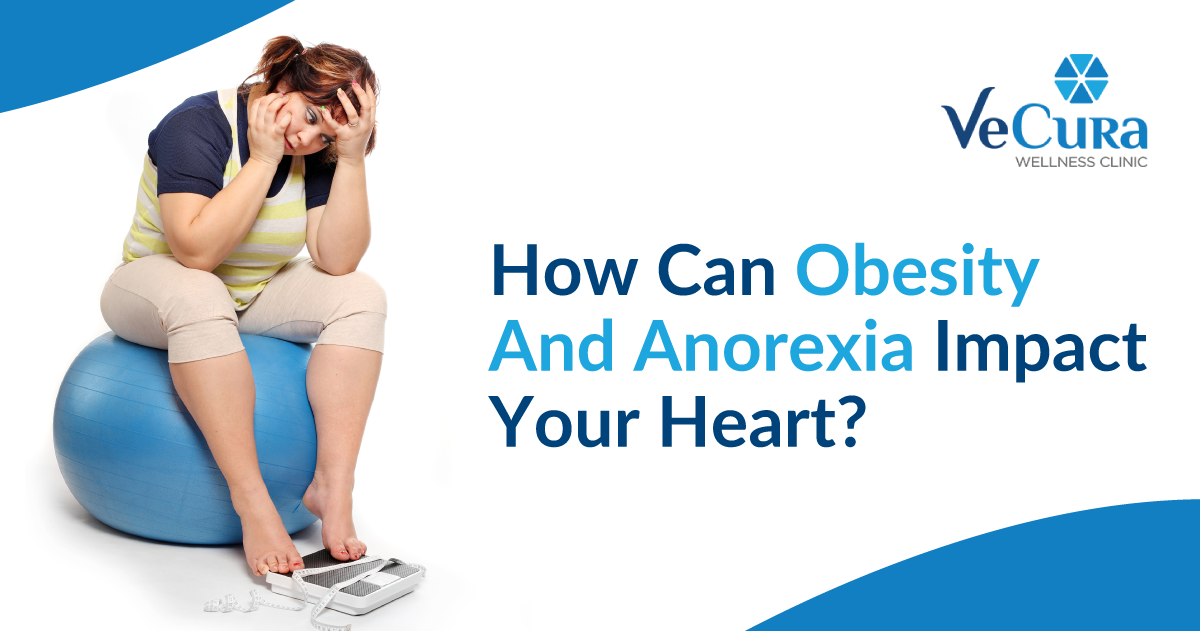If you’ve been into weight loss for quite some time now, you would’ve definitely heard about weight loss with intermittent fasting. While it works wonders for some, it may not exactly be magical for others.
Intermittent fasting is not just a diet but a lifestyle that harnesses the body’s natural rhythms to optimise fat burning and enhance overall well-being. In this beginner’s guide, we’ll discuss this popular dietary approach in detail, empowering you to embark on a transformative journey towards a healthier, fitter self.
Whether you’re new to the concept or looking to learn more about it, this comprehensive guide will equip you with the knowledge and tools to embrace intermittent fasting as a sustainable and effective weight loss strategy.
Keep reading to know more!
What is Intermittent Fasting, and How Does it Work?
Intermittent fasting is a dietary routine that alternates between fasting and eating intervals. Instead of emphasising what you eat, it emphasises when you eat.
Intermittent fasting involves several methods, but the most common are:
- The 16/8 method– (fasting for 16 hours and restricting eating to an 8-hour window), and
- The 5:2 method– (eating normally for five days and restricting calories to 500-600 for two non-consecutive days).
The primary goal of intermittent fasting is to improve your body’s metabolic processes. When you fast and do not consume calories, your insulin levels drop, and your body begins to use stored fat as an energy source. Over time, this results in weight loss. Fasting also activates cellular repair processes such as autophagy, eliminating waste materials and increasing cell function.
If you are planning to lose weight through intermittent fasting, it’s advisable to consult with a healthcare professional for better guidance and support.
Suggested: Also check the How To Lose Water Weight Naturally?
Who Can Do Intermittent Fasting?
Generally, intermittent fasting is flexible enough for most healthy adults to engage in it safely.
However, before starting any new dietary regimen, look into your circumstances and check with a healthcare professional, especially if you have pre-existing medical conditions, are pregnant or breastfeeding, or are taking medications.
People who have a history of eating disorders should proceed cautiously and seek the counsel of a medical professional.
Ultimately, it varies from person to person, and personalised guidance is essential to ensure its safe and effective implementation.
Health Benefits of Intermittent Fasting
In addition to its remarkable weight loss potential, intermittent fasting offers a multitude of health benefits. By giving our bodies a break from constant digestion and providing periods of rest, intermittent fasting triggers a cascade of positive physiological changes.
Firstly, it stimulates autophagy, which is a process by which cells remove damaged parts and improve overall cellular health. This has been associated with a lower risk of chronic diseases such as cancer and neurological disorders.
Intermittent fasting improves insulin sensitivity, which leads to better blood sugar control and a lower risk of type 2 diabetes.
Additionally, it also benefits cardiovascular health by lowering blood pressure, cholesterol levels, and inflammation.
Suggested: Also check the 9 Reasons Why Curd Is Good For Weight Loss
Other benefits:
- Improved brain health: Fasting has been found to improve cognitive capacities, promote brain function, lower the risk of neurodegenerative disorders, and increase brain-derived neurotrophic factor (BDNF).
- Enhanced autonomic nervous system balance: Intermittent fasting can help to enhance the balance of the sympathetic and parasympathetic neural systems, which can help with overall well-being and stress management.
- Long-term metabolic benefits: Intermittent fasting can reset the body’s metabolic processes, resulting in long-term weight management and better metabolic health.
By embracing intermittent fasting, you can not only achieve weight loss but also experience a wide range of health benefits that contribute to a longer, healthier life.
What To Keep in Mind Before Starting
Before embarking on an intermittent fasting journey for weight loss, it’s crucial to consider a few key factors.
First, talk to your doctor, especially if you have any underlying health issues or are on medications. They can provide personalised advice and guarantee that intermittent fasting is safe for you.
Second, understand that intermittent fasting is not a quick fix. It takes dedication and perseverance. It is critical to ease into fasting windows gradually and enable your body to adjust to avoid overload and other negative effects.
Furthermore, keep in mind that intermittent fasting is not an excuse to eat unhealthy foods during your eating window. Consume nutrient-dense meals and keep a balanced diet.
It’s also crucial to listen to your body. Consider changing your fasting and eating periods or getting expert guidance if you deal with excessive hunger, weakness, or any other symptoms.
In the end, intermittent fasting is not suitable for everyone and lifestyle. If you have a history of eating disorders or have a complicated relationship with food, it’s crucial to approach intermittent fasting cautiously and consider alternative approaches prioritising overall well-being rather than weight loss alone.
7 Tips For Weight Loss With Intermittent Fasting!
If you’re looking to achieve weight loss goals through intermittent fasting, here are a few valuable tips to guide you on your journey:
- Start slow: Increase your fasting durations gradually to allow your body to adjust. Begin with shorter fasting windows and gradually lengthen them as you gain confidence.
- Stay hydrated: It is especially important to stay hydrated during fasting periods. To keep your body nourished and prevent dehydration, drink plenty of water, herbal teas, or other non-caloric liquids.
- Choose a suitable fasting method: Explore various intermittent fasting regimens, such as the 16/8 method or the 5:2 diet, and choose one that fits your lifestyle and interests.
- Opt for nutrient-rich foods: Focus on consuming full, nutrient-dense foods to fuel your body when breaking your fast. Start consuming plenty of fruits and vegetables, lean proteins, and healthy fats.
- Practise mindful eating: Intermittent fasting allows you to practise mindfulness in your eating habits. Pay attention to your hunger cues, eat attentively, and savour each bite to ensure you’re full without overeating.
- Incorporate physical exercises into your routine: For weight loss, regular physical activity should be combined with intermittent fasting. To increase fat-burning and muscle mass maintenance, combine cardiovascular and strength training routines.
- Seek professional advice: If you’re new to intermittent fasting or have specific health concerns, it’s advisable to consult a healthcare professional or registered dietitian. They can provide personalised guidance and ensure you follow a safe and effective approach.
By implementing these tips, you can maximise the benefits of intermittent fasting and optimise your weight loss journey.
VeCura Wellness: Your One-Stop Solution For Weight Loss!
Intermittent fasting can be a common strategy for weight management among individuals. However, if you’re looking to shed those additional pounds quickly and healthily, we are here to help you!
VeCura Wellness Clinic, with branches in major cities,
A leading weight management clinic helping thousands achieve their health and fitness goals through customised treatments for weight loss, body contouring and inch loss.
Our skilled wellness experts, certified nutritionists and dieticians are committed to delivering personalised consultations, ensuring that you receive optimal guidance and support throughout your weight loss journey. You can also get customised diet plans that help you attain your weight loss goals easily, quickly and healthily!
Conclusion
As we all know, intermittent fasting has emerged as a powerful tool for weight loss, backed by scientific research and countless success stories.
By incorporating periods of fasting into our daily routine, we can tap into the benefits of increased fat oxidation, improved insulin sensitivity, and enhanced metabolic function. Moreover, intermittent fasting promotes mindful eating, helping us develop a healthier relationship with food.
With consistency, discipline, and proper guidance, anyone can harness the power of intermittent fasting to achieve their weight loss goals and venture on a journey of long-lasting well-being!
Note: To explore more engaging content and stay connected, feel free to visit VeCura Wellness YouTube channel for exciting videos, insightful discussions, and much more.
Weight Loss With Intermittent Fasting: (FAQs)
1. In a month, how much weight can you lose with intermittent fasting?
If implemented properly with the right eating habits, exercise routine and lifestyle, adults can lose up to 1kg per week with intermittent fasting. While it’s a quick and healthy way to lose weight, you should not rush it.
2. Is it possible to lose 10 kg in a month with intermittent fasting?
No, expecting to lose 10kg in a month with intermittent fasting is a far-fetched goal, as it is impossible and unsafe to do so. However, with proper implementation, you can expect to lose 2-5kgs per month.
3. Can I eat dal during intermittent fasting?
Yes, you can eat dal during fasting. It’s advisable to break your fast with fruit and a light homemade meal like rice, roti and dal after an hour of breaking the fast.
4. Which fruit is best for fasting?
Berries and limes are great options during intermittent fasting. When fasting, you can stock up on strawberries, blueberries, raspberries, kiwi, lemons, grapes, and more.
5. What is a good breakfast for intermittent fasting?
Upma, quinoa, or oats with a lot of nuts, seeds, and Greek yoghurt are all good breakfast options. Nuts and complex carbohydrates together provide both quick and long-lasting energy, while protein helps in muscle growth.










0 Comments